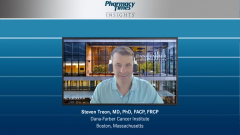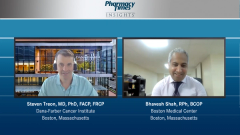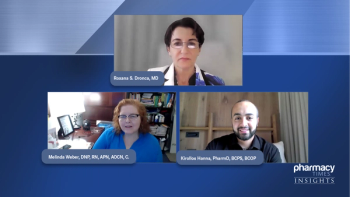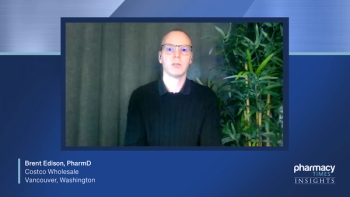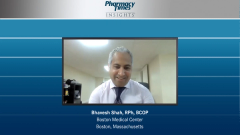
Approaches to Managing Progressive Waldenstrom Macroglobulinemia
Recommendations for classifying and treating patients with progressive Waldenstrom macroglobulinemia.
Episodes in this series

Bhavesh Shah, RPh, BCOP: We wanted to also talk about progression of disease. You said that we’re treating these patients for symptomatic relief and not really cure. How do you classify progression of disease and determine to move on to the subsequent, or second-line therapy?
Steven Treon, MD, PhD, FACP, FRCP: From the get-go, most patients are going to respond to frontline therapy. We’re going to talk about what those options are in a bit. But there are in the neighborhood of about 10% to 20% of patients who are truly primary refractory. They just aren’t responding. They’re brittle. It’s important to recognize those patients. Typically, if we’re using chemoimmunotherapy, if you see that after 2 cycles of bendamustine [Treanda]/rituximab [Rituxan] or bortezomib [Velcade]/dexamethasone/rituximab that you haven’t seen the IgM [immunoglobulin M] coming down and the patient remains anemic and symptomatic, then you start thinking, “What am I going to do next?” It’s not uncommon to give a third cycle and reassess, but it depends on the acuity of the patient and how quickly you need to get control of the board. That’s important.
The way we then assess if somebody is progressing is by monitoring the IgM. The IgM is a really good surrogate marker of disease. In general, if you’ve had more than a 25% increase since the nadir that a patient has achieved with therapy, then that’s considered progressive disease [PD]. Don’t make the mistake of thinking that an IgM marker is going to tell you it’s time to treat the patient again because, many times, the IgM goes up, it meets PD criteria, and then it levels off. Or it just goes up very slowly and the patient’s doing well. More and more these days, we’re recognizing that the time to next therapy is far more important when we look at drugs as opposed to PD, which people can meet very quickly.
From a CR [complete response], if you think about it, the moment you become immunofixation-positive again, you’ve relapsed. Does that mean that when you go to treat that patient and their hemoglobin is 14 g/dL and they’re feeling well, you’re going to bring them in and give them therapy? No way. It’s important to recognize that PD by biochemical means monitoring the IgM and doesn’t itself trigger a need for therapy. But if you have somebody becoming progressively anemic as their IgM is going down, it’s a different story, because there the manifestation of disease is clear.
Bhavesh Shah, RPh, BCOP: Absolutely. And we probably need to talk about the frontline and then move on.
Steven Treon, MD, PhD, FACP, FRCP: Yes, of course.This is a unique opportunity for me because I seldom ever get to talk to pharmacists. And yet, when I rounded in the hospital, those were the best opportunities for me to learn because it’s a unique learning experience. That’s why this is a great program.
Bhavesh Shah, RPh, BCOP: I appreciate that. It especially depends on the institution where you practice and the model that’s set up. A lot of times pharmacy isn’t that interactive with providers. I feel like we have a very interactive model where our pharmacists are embedded within the teams and are able to prescribe medications. They can prescribe oral medication and supportive care medications and can change doses. Of course, they have a collaborative practice agreement with the providers, so they serve as an extension of the providers. It’s very unique, and there’s a lot of education that they get working directly with providers in understanding the pathophysiology of the disease, how things are prescribed, and what the treatment philosophy is. It’s really important to have that dynamic. I’m glad that we’re able to share some of that.
Transcript edited for clarity.
Newsletter
Stay informed on drug updates, treatment guidelines, and pharmacy practice trends—subscribe to Pharmacy Times for weekly clinical insights.

